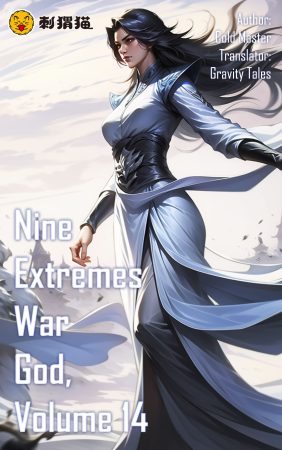Chapter 129: The Battle for Madrid
Our Discord Server: https://discord.gg/PazjBDkTmW
You can buy coins here to unlock advanced chapters: https://gravitytales.com/coins-purchase-page/
A shell exploded in the distance, kicking up a cloud of black smoke and countless shattered stones. A half-collapsed house swayed a few times but ultimately did not fall with the explosion, remaining stubbornly upright, a picture of half-dead desolation.
In a trench hastily dug on the side of the street, a Republican militiaman cautiously crawled forward until he was inside a barricade. Only then did he get up, pat the dust off his body, and straighten the crooked steel helmet on his head.
“What’s the situation?” a Republican officer asked. He was sitting in a corner, wiping a small pistol. Their block was a key strategic point, so the Republican army had deployed 1,000 men here for its defense. Over the past few days, they had repelled several Nationalist attacks, losing a few dozen soldiers themselves.
This was still the outer district of Madrid, and the fighting between the two sides had already reached a white-hot intensity. Soldiers from both armies fought desperately in the narrow streets. Positions changed hands several times, and sometimes, dozens of men would be killed or wounded in the fight for a single building.
“Those German snipers are really good. Most of the soldiers we sent out to counter-snipe them have been taken out. I just came back from one of our sniper teams. They lost two men and didn’t even see a shadow of the Germans,” the soldier said with a sigh. “For now, at least, we don’t have a good way to deal with the German snipers.”
“Those snipers are like hunters stalking their prey. They have a big impact on our morale. Many of our comrades have died inexplicably in their positions. Now, few soldiers dare to expose their heads in the positions, which has directly affected our firing accuracy,” the officer said. “We’ve wasted a lot of ammunition, but the enemy’s casualties have decreased.”
“I think our biggest problem isn’t those snipers anymore, Major,” the soldier said, pointing through a narrow firing slit to the end of the street in the distance. “Behind that corner over there… yes, on the other side of that big building, two German P-3 tanks have arrived. That’s right, P-3s, not those P-2 tin cans. These are the real big boys.”
After speaking, he pulled his hand back, avoiding the firing slit for fear of becoming prey for a German sniper. “It looks like they’re planning a large-scale attack. We lack anti-tank weapons on our side. We have to think of something.”
“This time, they’re in for a loss,” the officer said with a smug laugh, pointing to the rear of the barricade. “Just a moment ago, our comrades from the Soviet reinforcements brought over a T-26 tank.”
As he spoke, he holstered his cleaned pistol and stood up. “This time, we’ll let the German tanks have a taste of being knocked out! Hehehe.”
Just then, a shell exploded on the side of the barricade. With the loud bang, a thick cloud of smoke rushed into the barricade and instantly billowed out through several machine-gun ports. The soldiers inside were all coughing uncontrollably from the dust and smoke, patting the dirt off their clothes.
Another shell exploded nearby. The increasingly dense artillery fire indicated that the Nationalists were preparing to attack.
“Cough, cough, cough. Those bastards, their shelling is getting more and more accurate,” the officer said, taking off his cap and emptying the dust from it. He complained with a grimace, “Before every attack, they fire a few damn shells to remind us not to fall asleep! Next time, I won’t even need to post sentries.”
“I’m going out for a smoke. Once those bastards start their attack, there won’t be time for it,” the officer said, grabbing a steel helmet from beside him and putting it on. He ducked low and walked out of the back of the barricade. He hadn’t gone two steps before the barricade behind him was hit by something. He felt the ground tremble beneath his feet, and then he was thrown off balance by a blast wave.
He struggled to regain his footing. When he turned back, he saw the collapsed barricade and, not far away, the slowly advancing Nationalist soldiers. Behind the dense crowd of soldiers were two German P-3 tanks providing support.
It was clear this position was bound to fall. Without the cover of the barricade, who knew how long the Soviet tank behind them could last. The officer quickly ran to the rear, dodging flying bullets and the rubble under his feet as he went.
After he had run a few dozen paces, a bullet accurately struck him in the thigh. It passed through fat, shattered bone with a sickening crack, and severed an artery before finally landing on the ground not far away, kicking up a bit of dust. The Republican officer’s body twisted as he fell to the ground, letting out a scream that was drowned out by the roar of artillery.
In a German position not far away, several German officers were observing the battlefield situation through a new type of scissor periscope inside a trench. Beside them, a group of recorders and engineers were mapping the scene and recording data.
“The weapon personally designed by the Führer is truly powerful. The Wehrmacht should continue to procure this weapon. It’s very useful against enemy bunkers and tanks,” an officer said in a tone of admiration, moving his eyes away from the periscope. “What do you all think?”
“The battlefield performance of this weapon is very good. If possible, it should be assigned to company-level units for rapid fire support,” another officer nodded, then turned to an engineer beside him. “Sir, do you think the cost can be further reduced?”
“It should be possible. Not just the Wehrmacht, but the Nationalist army is also interested in purchasing this weapon. Once production increases, the price will naturally come down,” the engineer said after a moment’s thought.
At that moment, the two German soldiers who had been testing the new weapon returned. One soldier was carrying an iron tube about a meter long and 150mm in diameter; the soldier behind him was carrying something that looked like a backpack and was holding a submachine gun.
“Sir! The Panzerfaust rocket launcher test was very successful! This weapon is very simple to aim and operate, and its power is immense,” the soldier carrying the iron tube—the rocket launcher—said excitedly. “This thing really packs a punch.”
“Five thousand units! We want to purchase 5,000 of these rocket launchers, and 50,000 rounds of dedicated ammunition,” a Spanish Nationalist officer on the edge of the group said urgently. “Please be sure to reserve some of the production for us.”
“The Italian military wishes to order 15,000 of these Panzerfaust rocket launchers. As for the ammunition, we would prefer to directly purchase the patent and import the production line for this weapon. The price can be discussed,” an Italian military observer nearby quickly added, afraid that if he spoke a moment later, the order would be taken by someone else.
“Gentlemen, please be patient,” the lead German general said with the smile of a good-natured old man, gesturing downwards with his hand to quiet everyone down. “This weapon is currently being issued within the Wehrmacht. It was personally named the ‘Panzerfaust’ by the Führer. It is considered a secret weapon within our army, and production is not yet plentiful. If you all wish to purchase it, you will have to wait a few more days.”
As they were speaking, a huge explosion was heard in the distance. The turret of a German P-3 tank was thrown high into the air. The tank’s hull was spewing large flames, and black smoke billowed into the sky, constantly churning, expanding, and fading.
“A T-26 tank! It’s a Soviet T-26!” Hearing the explosion, an officer quickly looked through the scissor periscope in that direction. Over there, a P-3 tank was emitting thick smoke. Not far from the destroyed German tank, a Soviet tank of a completely different shape, painted dark green, was slowly turning.
“Boom!” The second P-3 tank opened fire. Because the distance was very short, the shot accurately hit the Soviet tank opposite. The shell tore a huge hole in the Soviet tank’s thin side armor. The Soviet T-26 also began to emit thick smoke, followed by a violent explosion that brought this small-scale tank battle to an end.
“Go quickly! Investigate! What were our losses this time?” the lead German general asked with a frown. A German officer nodded and turned to leave.
The Spanish Nationalist officer stepped forward and said a few words of comfort. The joy from the successful Panzerfaust test was largely gone, and everyone’s mood had been soured by the P-3’s explosion. They all stared at the thick smoke in the distance in silence, and the atmosphere dropped to a freezing point.
“Report. The two P-3s just now were Nationalist tanks. There was only one mechanic and one commander from our Wehrmacht inside,” the German officer who had gone to investigate returned shortly after, panting as he reported to his superior. “All five soldiers on board were killed. The ammunition was hit, causing an explosion. The tank’s chassis is twisted, but their sacrifice was worth it. The nearby Republican forces have retreated. We have taken about two city blocks.”
“What are the losses?” the lead German general asked.
“During the capture of Cáceres, the 8th Panzer Division had 17 killed and 76 wounded,” a German Wehrmacht staff officer immediately stepped forward to report upon hearing the general’s question. “Subsequently, in the battle for Salamanca, they had 41 killed and 193 wounded. That battle was very fierce. Our army lost 5 tanks there.”
He paused and continued, “After lifting the siege of Salamanca, the 8th Panzer Division advanced east along the Duero River and has now helped the northern Nationalist army retake Zaragoza. The latest loss report has not yet come in.”
The general then turned to a young man in an SS uniform beside him. The young man immediately stood at attention and replied, “After retaking Córdoba, the 2nd SS Panzer Division advanced south, lifted the siege of Granada, and continued south to retake Málaga and Almería… Losses… 113 officers and men were killed, and 695 were wounded.”
As they spoke, another shell landed in the middle of a nearby street, shattering the remaining glass windows and leaving a huge cloud of black smoke and a deep crater in the road. The battle for Madrid, it seemed, was still to continue, for a very, very long time.












